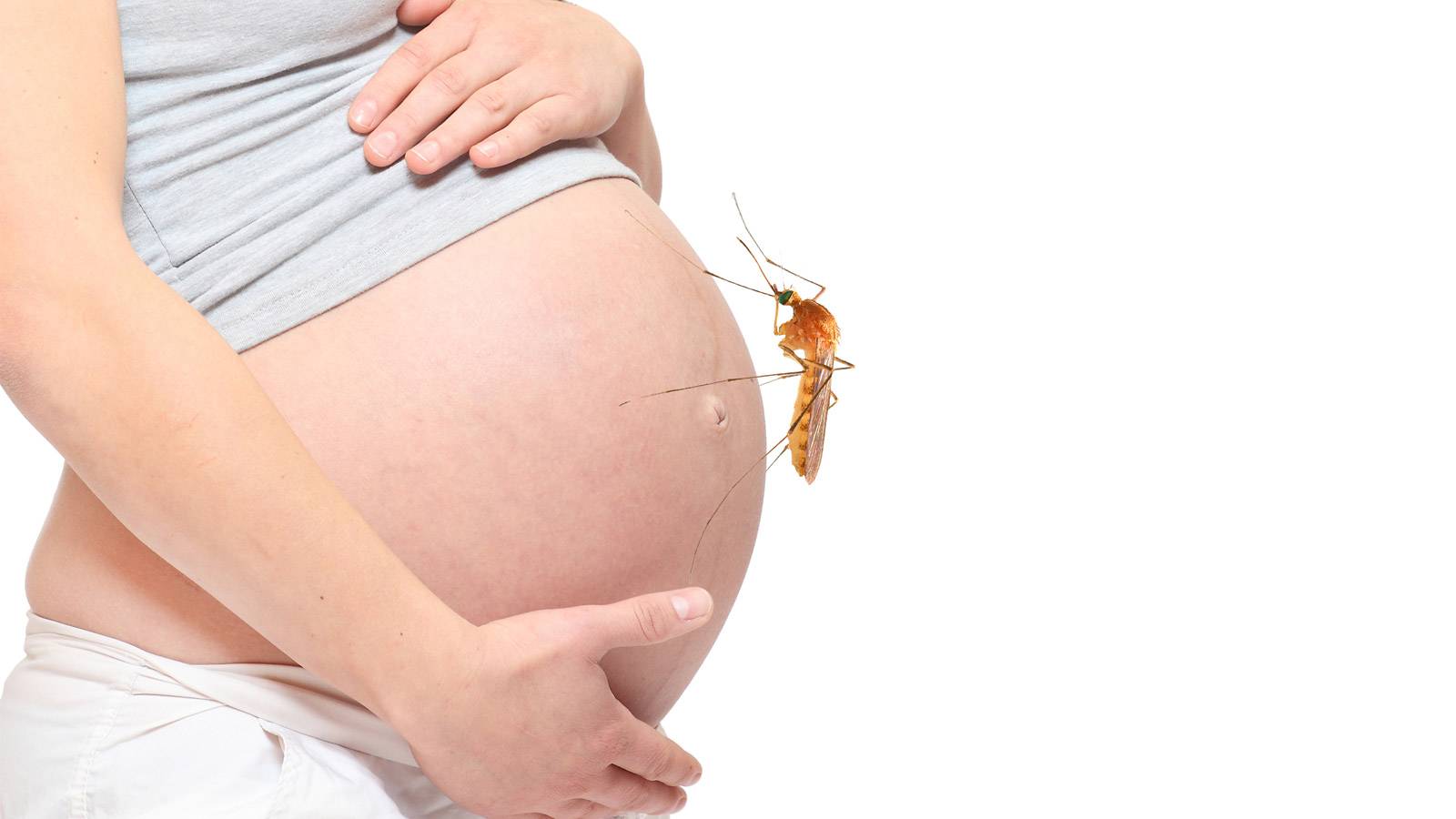Preggers and fretting about Zika? Doctors say the risk that your baby might have microcephaly is very low.

One per cent. This is how small the odds are that your developing foetus will have microcephaly as a result of your Zika infection.
Stresses Dr Leong Hoe Nam, an infectious disease specialist at Mount Elizabeth Novena Hospital, “Overall, the risk is very low. [Pregnant mothers should] carry on, and be happy. Being a happy mum soothes the foetus and allows it to grow best in a secured environment. Nothing you can do will affect the outcome, but being happy and positive will give the foetus all the encouragement you can.”
Singapore currently has 401 Zika infections, which includes 16 pregnant women. Thailand has reported one case of Zika-linked microcephaly, with another three more suspected ones. Microcephaly — the much dreaded abnormality in babies of mums-to-be who contracted the Zika virus — happens when a child is diagnosed to have a small head circumference. This condition results in various developmental problems, including developmental delays and mental retardation. Here’s what we know about microcephaly:
“Overall the risk is very low. [Pregnant mothers should] carry on, and be happy.”
1. It’s difficult to diagnose
Although women get Zika in the first trimester of pregnancy, microcephaly can only be diagnosed in the third trimester. Dr Leong explains, “This sounds alarming, but the problem is the failure of growth [of] brain tissue. And this can only become apparent when the rest of the body grows, but the brain doesn’t.”
Incidentally, microcephaly can be caused by other factors, too. Dr Leong notes that besides Zika, alcohol and drug consumption, genetics and other viral infections can also cause this congenital condition. So, it might take a while to rule out these other causes.
2. It can be diagnosed while your baby is in utero
A simple ultrasound should detect possible abnormalities like microcephaly in your baby. SmartParents expert Dr Low Kah Tzay, a paediatrician at Mount Elizabeth Hospital, notes that during the scan, an experienced sonographer will be able to spot asymmetry, abnormal structures and calcification in the brain or abnormal fluids. However, a follow-up scan and evaluation will need to be carried out after the baby is born to confirm the findings.
Being diagnosed with microcephaly is NOT a death sentence ― click to find out why…

3. Measuring head circumference is a complex process
While the health booklet has standardised charts, don’t take these guidelines as hard and fast rules. Dr Low says that parents should be mindful of considering their child’s head circumference “in relation to his height as well as his parents’ head circumference”. You should also compare his head and height measurements against his peers. Remember, too, that from 3 months till they turn 3, bubba’s head circumference will change. Also, your child’s head grows rapidly in the first two years and “the circumference norms [can] actually vary from month to month,” Dr Low points out.
4. It is not a death sentence
That said, a microcephaly diagnosis is not the end of the world. Parents can explore various therapy options. Dr Low suggests trying physiotherapy to resolve movement issues arising from physical development delays. Speech difficulties can be treated with speech therapy and occupational therapy for behavioural problems.
“It’s important to note that some cases of microcephaly may not have impairment.”
Early detection and intervention is critical, so as to ensure the best outcomes. Dr Low stresses, “Parents should be vigilant in monitoring [their] child’s developmental milestones in the first 3 years of their life and seek an evaluation if they have any concerns.” He adds, stressing, “It’s important to note that some cases of microcephaly may not have impairment.”
Get tested if you are worried that you might be infected with the Zika virus or currently live in or near a known cluster. The tests are subsidised for all Singaporeans and Permanent Residents, regardless of where you stay. It costs $60 at all public hospitals and polyclinics. Private patients will need to pay $150. Also, make sure to keep your living spaces free of mosquitoes by doing the Mozzie Wipeout.
Last, Dr Leong has this advice for anxious pregnant women, “Love the child, enjoy your pregnancy. To be able to conceive, and subsequently bear a child, in itself, is already a beautiful miracle.”
Dr Leong Hoe Nam is an infectious disease specialist at Mount Elizabeth Novena Hospital. Dr Low Kah Tzay is a paediatrician at Mount Elizabeth Hospital.
Photo: iStock / Channel NewsAsia and Reuters
In case you missed these...
All you need to know about Zika
Natural ways to keep mosquitoes at bay
Your baby may be giving your “mummy thumb”!

